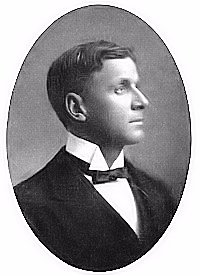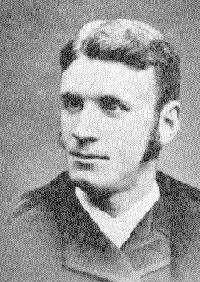Introduction

Born: August 3, 1858, Syracuse, New York.
Died: May 18, 1901, Naples, Italy.
Buried: Oakwood Cemetery, Syracuse, New York.


Born: August 3, 1858, Syracuse, New York.
Died: May 18, 1901, Naples, Italy.
Buried: Oakwood Cemetery, Syracuse, New York.

Babcock was the husband of Katherine Eliot Tallman (married 1882, Poughkeepsie, New York).
He attended Syracuse University and Auburn Theological Seminary. He ranked high as a student and participated in both athletic and musical activities. Tall, broad shouldered, and muscular, he was president of the baseball team, an expert pitcher, and a good swimmer.
He played several musical instruments, directed the school orchestra, and played and composed for the organ. He was a singer and leader of the glee club.
He could do impersonations, was clever at drawing, and had a knack with tools. He was also an avid fisherman. He might have become a professional musician had he not chosen the ministry.
His first pastorate was at the First Presbyterian Church, Lockport, New York. In 1886, he was called to Brown Memorial Church, Baltimore, Maryland, where he often counseled students at Johns Hopkins University.
As his fame spread, he was asked to preach at colleges all over America. Babcock was not a great theologian or deep thinker, but had a talent for presenting spiritual and ethical truths with freshness and effect. In doing this, he was aided by his agile mind, wide range of knowledge, dramatic ability, speech fluency, and magnetic personality.
After almost 14 years in Baltimore, Babcock was called to the prestigious pastorate of the Brick Presbyterian Church in New York City, to fill the vacancy left by the retirement of Henry Van Dyke. Babcock had been there only 18 months when he made a trip to the Holy Land. While overseas, he died of brucellosis.
Though Babcock published nothing during his life, his wife Katherine collected and published many of his writings after his untimely death as Thoughts for Everyday Living (New York: Charles Scribner’s Sons, 1901). A volume of his poems contained This Is My Father’s World. Babcock, of course, never heard his famous hymn sung.
How stoutly and grimly our iron prow
Pushes its way to the West,
Like the sharp, steel point of a shining plow
That cleaves the green field’s breast.
How glorious the sun in the sky today;
Why rush with such haste along,
And lose the bright hours as we speed away,
And the gleam of the waves, and their song?
But the heart of the ship still throbs away,
It never dreams of rest;
How joyous, how winsome soe’er the day,
On, steadily on, to the West!
Now thunders the gale in its awful might,
’Tis madness to face such a sea.
Why brave such risks in a hopeless fight?
About ship! And off for the lea!
But the good ship will not flinch from her foe,
She has set herself for the fray.
Her orders are Westward, come weal, come woe,
And she cannot but obey.
Then onward through sunshine, and storm and night,
No tarrying here, my soul;
Thou must, if thou read thy chart aright,
Push steadily to thy goal.
Let pleasures delight thee, but not detain,
Let courage in storms rise higher,
And thy Pilot will bring thee thro’ joy and pain
To the haven of thy desire.
Maltbie Babcock
Thoughts for Every-Day Living, 1901